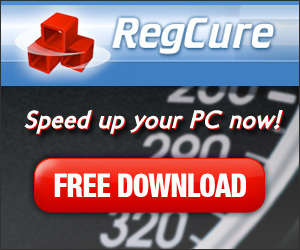What to Do If Your
Computer Runs Slow
 One of the most common problems of computer users is that their computer
runs slow. They wonder what happened to that lightening fast computer they had when it was new. While the
computer may not be that old, suddenly it doesn't seem to be running as fast as it once did. If you notice
that your computer runs slow, don't rush out and purchase a new computer. Many things may be the culprits and
they may require simple fixes you can do yourself. One of the most common problems of computer users is that their computer
runs slow. They wonder what happened to that lightening fast computer they had when it was new. While the
computer may not be that old, suddenly it doesn't seem to be running as fast as it once did. If you notice
that your computer runs slow, don't rush out and purchase a new computer. Many things may be the culprits and
they may require simple fixes you can do yourself.
Why Your PC Runs Slow
Unless it's actually a lemon or has a serious hardware problem, one of the main reasons your computer runs slow is
because it has not been maintained to keep it at its top performance level. Because many things can make your
computer run slow, the main things I'm going to concentrate on are things you can do to help it get it back to
tiptop shape.
The majority of computer users use their computer for surfing the web, emailing, messaging and downloading music
or pictures. Any time you're downloading things from the internet, you're risking getting harmful things that can
affect the performance of your computer. If you're in the habit of installing programs just to remove them and
install new ones, this can also affect your computer. While these are things many people do, they can affect your
computer by making it run slow.
Every time you go to certain web sites, tracking cookies or little programs are put on your computer the same as
when you open attachments with your emails. Opening links that people send you in emails or instant messaging can
also affect your computer. These things are not bad but can make your computer run slow over time.
If you find your computer runs slow, it could be from any of these things or all of them. Unless you want to pay
a computer technician big bucks to fix the problem, it would be beneficial for you to learn some simple maintenance
tricks. If your computer runs slow (even if it doesn't), consider performing these steps at least once a week.

Step By Step To A Quicker PC
1. Empty the Recycle Bin. Go to your Desktop, where the Recycle Bin is located. Right click on it and
choose Empty Recycle Bin.
2. Empty Temporary Files. Go to My Computer and double click on your C: Drive. Find the Windows folder and
double click on it. Find the Temp folder and double click on it to open it. Go to Edit and choose Select All and
Delete. Another way to do this while on the internet is to go to Tools, Internet Options and Browsing History. You
can choose to delete just the temporary files or cookies as well.
3. Get rid of unnecessary icons on the desktop and taskbar on the bottom of your screen. When you install a
program and it asks if you want a shortcut on the Desktop, select no or uncheck the box if it's the default. The
more things you have running on your Desktop or taskbar when you start up your computer, the slower it's going to
run. To get rid of things on the taskbar, go to Start, Run and type in 'msconfig' and hit enter. Click on the
Startup tab and uncheck all the programs that are unnecessary. The only things I keep going are the internet icon,
volume and antivirus. If your computer runs slow, it may be from having many things on the taskbar.
4. Remove unnecessary programs. Go to Control Panel and Add/Remove Programs. Look at the programs and see if
there are programs you no longer use or that you don't recall installing. Uninstall them. Keep in mind that
deleting program icons is not enough – they need to be uninstalled.
5. Run your antivirus at least once a week. If your computer runs slow, it could be infected with spyware or
a virus. When it comes to antivirus software, more is not better. Only use one antivirus.
6. Clean up your hard drive. Go to My Computer and right click. Select Properties, Performance Information
and Tools, Advanced Tools. Check on the Error Checking Option and the Defragment Option.
Final Thoughts
These are the simple and free ways to speed up your computer. If your computer still runs slow you need to
check out a registry cleaner software application. For a side by side comparison see Top Registry Cleaners 2010. 
| 

